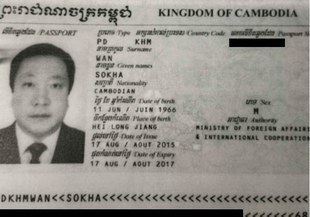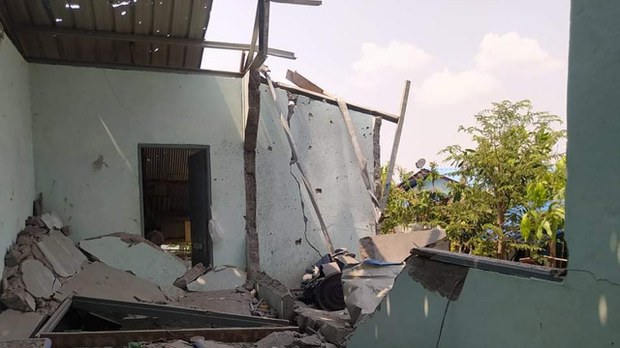US report on international religious freedom cites genocides in China and Myanmar
China and Myanmar feature prominently in the U.S.’s latest report on global restrictions on religious rights and practices, which singles out the two countries for their repression of mostly Muslim Uyghurs and Rohingya. “We have seen to genocides of religious minority communities in recent years in China and Burma,” said U.S. Ambassador-at-Large Rashad Hussain of the Office of International Religious Freedom during a press conference Thursday to release the report. The State Department is required to submit its assessment of religious freedom across the globe to Congress each year. Witnesses and experts provided grim testimony in the report about torture, rape and other human rights violations in the Xinjiang Uyghur Autonomous Region (XUAR). “It comes as no surprise that the People’s Republic of China is a glaring example” of a government that represses citizens who practice certain religions, said Hussain, who serves as an advisor to the President Joe Biden on religious freedom conditions and policy. “The PRC government continues to commit genocide and crimes against humanity against Uyghurs who are predominantly Muslim and members of other ethnic and religious minority groups,” he said. Hussain noted China’s continued use of technologies, including artificial intelligence and facial recognition, “to surveil and maintain control of its open-air prison in Xinjiang.” Human rights groups and Uyghur advocacy organizations have amassed credible evidence of the severe abuse Uyghurs in Xinjiang have suffered, from mass incarcerations and the destruction of mosques to torture, rape and forced sterilizations. Beijing has angrily denied the accusations, calling them the “lie of the century.” “China continues its genocide of predominantly Muslim Uyghurs and other religious minority groups,” said U.S. Secretary of State Blinken at the press conference. “Since April 2017, more than 1 million Uyghurs, ethnic Kazakhs, Kirghiz and others have been detained internment camps in Xinjiang.” RFA has reported that up to 1.8 million Uyghurs and other Turkic minorities have been detained in China’s vast network of hundreds of internment camps throughout Xinjiang. Chinese officials have said that the camps are vocational training centers designed to offer an alternative path away from terrorism and religious extremism. Dolkun Isa, president of the World Uyghur Congress in Germany, said the comments by Hussain and Blinken show that the U.S. stands with Uyghur Muslims and will hold China to account for the Uyghur genocide. “Their powerful words should encourage the international community to act to end the Uyghur genocide,” he said. “China wants to eradicate Islam because it believes Islam is a cancer. China is committing genocide against Uyghur people precisely because we are Muslims.” Rushan Abbas, executive director of the Washington, D.C.-based Campaign for Uyghurs, said she was pleased that Blinken called out China’s gross violations of human rights, genocide and crimes against humanity. “Blinken’s words reveal to the world that China is like the emperor’s new clothes, hiding behind lies,” she said. There was no immediate comment from the Chinese government about the U.S. report. The report also noted Myanmar’s repressive treatment of members of the Rohingya ethnic and religious minority group. Violent clearance operations of Rohingya communities in western Myanmar by the country’s military in 2017, including arbitrary killings, torture and mass rape, drove more than 740,000 people to neighboring Bangladesh, where they now living in sprawling refugee camps. “In March, based on extensive legal review of the evidence, I made the determination that Burma’s military committed genocide and crimes against humanity with the intent to destroy predominantly Muslim Rohingya in 2017,” Blinken said, citing evidence of attacks on mosques, use of religious and ethnic slurs, and the desecration of Korans. The military junta that seized power from the democratically elected government in February 2021 had confined 144,000 Rohingya in internal displacement camps in Rakhine state by the end of 2021, the report says, citing information from the United Nations High Commissioner for Refugees. The junta also continues to restrict where Rohingya are allowed to travel in Myanmar and has made no efforts to initiate the return of Rohingya refugees from Bangladesh, the report says.






